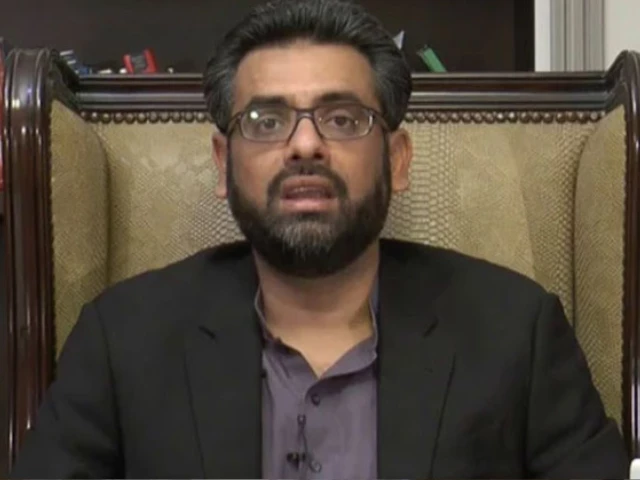Khyber-Pakhtunkhwa on Wednesday opposed any move to reduce provincial shares in federal taxes through a constitutional amendment, instead calling for such issues to be resolved through a new decision by the National Finance Commission (NFC). Addressing a press conference, Chief Minister’s Advisor on Finance Muzammil Aslam said any change in revenue distribution between the Center and provinces must be decided by consensus within the NFC.
"Parliament is not the forum to address this issue – this requires the agreement of all five stakeholders: the four provinces and the federation," he said. He called on the Federal Government to immediately issue a notification for the first meeting of the NFC, tentatively scheduled for November 18, noting that no formal notice had yet been issued. The renewed debate over the NFC erupted this week after Pakistan People’s Party Chairman Bilawal Bhutto-Zardari revealed the government’s agenda regarding the 27th Amendment (to the Constitution) via a social media post. The NFC is chaired by the federal finance minister and all four provincial finance ministers are members, where the decision is taken by consensus in accordance with the constitution. However, a constitutional amendment requires a two-thirds majority. Muzammil also opposed the transfer of the areas of education and population planning to the federal government, saying when the federal government cannot manage its own expenditure, how can it take care of new departments. Muzammil criticized the federal government for its failure to contain spending and monitor provincial shares. Similar sentiments were also expressed by a senior leader of the Pakistan People’s Party. The federal government wants to gut the provinces by rolling back the NFC because it cannot manage its fiscal space, PPP’s Syed Naveed Qamar said while speaking at a seminar. Finance Minister Muhammad Aurangzeb this week also refused to comment on the government’s proposal to take responsibility for the two provincial subjects and end the guaranteed minimum share of the provinces.
"This discussion belongs to the NFC, where it will take place," Aurangzeb said, declining to comment on proposals to roll back decentralization of education and people’s welfare or end the constitutionally guaranteed 57.5% provincial share in the divisible federal pool. But Muzammil Aslam questioned whether the federal government would also take responsibility for the 315,000 employees of the provincial education department, who make up 45 percent of the total KP government employees. He said the KP government spends 22 per cent of its budget on education and the federal government cannot do the same, which would compromise the quality of education in the province. The KP financial advisor proposed revising the criteria for determining provincial shares in the NFC, shifting the focus from a primarily population-based formula to factors such as forest cover, development of water reservoirs and reducing the number of out-of-school children.




